
Kyrenia: The Jewel of Northern Cyprus
Nestled on the northern coast of Cyprus, Kyrenia is a charming city that boasts a rich blend of history, culture, and natural beauty. Known for its picturesque harbor, Kyrenia offers a serene backdrop of the Mediterranean Sea, making it a perfect destination for those seeking relaxation and exploration alike. One of the city's main attractions is the Kyrenia Castle, a historical fortress dating back to the 7th century. Within its ancient walls, visitors can discover the Shipwreck Museum, which houses the remains of a 4th-century Greek ship. The castle provides stunning panoramic views of the city and the harbor, making it a must-visit spot for history enthusiasts and photographers. Kyrenia's old town is a maze of narrow, cobblestoned streets lined with quaint shops, cafes, and traditional taverns. Here, tourists can indulge in local Cypriot cuisine, shop for unique souvenirs, or simply enjoy the vibrant atmosphere. The city's nightlife is also lively, with bars and clubs offering entertainment well into the night. Nature lovers will appreciate the nearby Kyrenia Mountains, where hiking trails lead to breathtaking vistas. The region's beaches, such as Alagadi Turtle Beach, are perfect for sunbathing and swimming, and they offer a chance to see nesting sea turtles during certain times of the year. Kyrenia is not just about sightseeing; it's about experiencing the warmth and hospitality of its people, enjoying its culinary delights, and immersing oneself in its rich cultural tapestry. Whether you're a history buff, a nature enthusiast, or simply looking for a beautiful place to unwind, Kyrenia has something to offer everyone.
Local tips in Kyrenia
- Visit Kyrenia Castle early in the morning to avoid the crowds and enjoy the best light for photography.
- Try the local dish, 'Meze,' at a traditional tavern in the old town for an authentic Cypriot dining experience.
- Rent a car if you plan to explore the Kyrenia Mountains and surrounding areas for more flexibility.
- Check out the local markets for unique souvenirs and handmade crafts.
- If visiting in the summer, bring plenty of sunscreen and water as temperatures can get quite high.
Neighbourhoods in Kyrenia
Kyrenia: The Jewel of Northern Cyprus
Nestled on the northern coast of Cyprus, Kyrenia is a charming city that boasts a rich blend of history, culture, and natural beauty. Known for its picturesque harbor, Kyrenia offers a serene backdrop of the Mediterranean Sea, making it a perfect destination for those seeking relaxation and exploration alike. One of the city's main attractions is the Kyrenia Castle, a historical fortress dating back to the 7th century. Within its ancient walls, visitors can discover the Shipwreck Museum, which houses the remains of a 4th-century Greek ship. The castle provides stunning panoramic views of the city and the harbor, making it a must-visit spot for history enthusiasts and photographers. Kyrenia's old town is a maze of narrow, cobblestoned streets lined with quaint shops, cafes, and traditional taverns. Here, tourists can indulge in local Cypriot cuisine, shop for unique souvenirs, or simply enjoy the vibrant atmosphere. The city's nightlife is also lively, with bars and clubs offering entertainment well into the night. Nature lovers will appreciate the nearby Kyrenia Mountains, where hiking trails lead to breathtaking vistas. The region's beaches, such as Alagadi Turtle Beach, are perfect for sunbathing and swimming, and they offer a chance to see nesting sea turtles during certain times of the year. Kyrenia is not just about sightseeing; it's about experiencing the warmth and hospitality of its people, enjoying its culinary delights, and immersing oneself in its rich cultural tapestry. Whether you're a history buff, a nature enthusiast, or simply looking for a beautiful place to unwind, Kyrenia has something to offer everyone.
When is the best time to go to Kyrenia?
Iconic landmarks you can’t miss
Bellapais Abbey
Discover the breathtaking beauty and rich history of Bellapais Abbey, a must-see Gothic treasure in the heart of Cyprus.
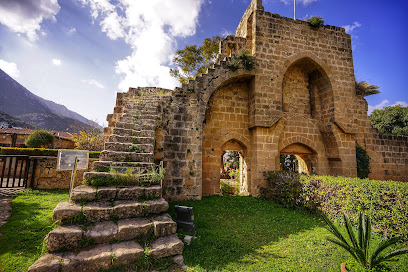
Eziç Peanuts
Experience authentic Turkish cuisine at Eziç Peanuts in Kyrenia, where traditional flavors meet a warm, inviting atmosphere by the sea.
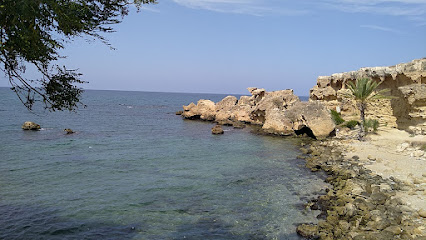
Larnaka Medieval Fort
Explore Larnaka's Medieval Fort: a historic castle with a museum, offering stunning views and a glimpse into Cyprus's past.
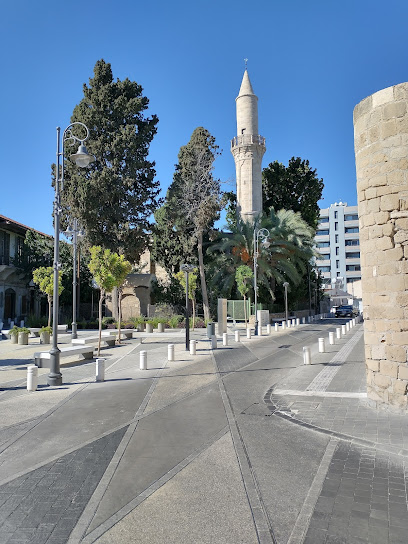
Girne (Kyrenia) Castle
Explore the rich history and stunning views at Kyrenia Castle, a must-visit landmark in Northern Cyprus.
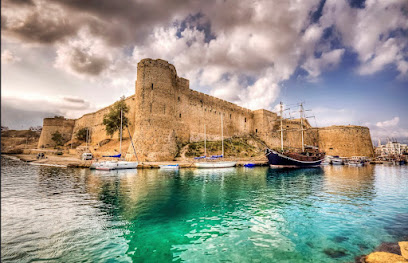
Escape Beach Club
Experience sun, sea, and endless fun at Kyrenia's Escape Beach Club, offering water sports, entertainment, and stunning Mediterranean views.
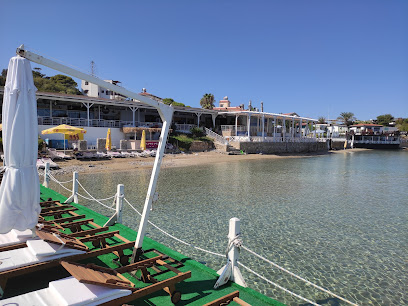
Büyük Han
Discover the rich history and vibrant culture of Büyük Han, a historic inn and marketplace in Nicosia, Cyprus, where art, food, and heritage converge.
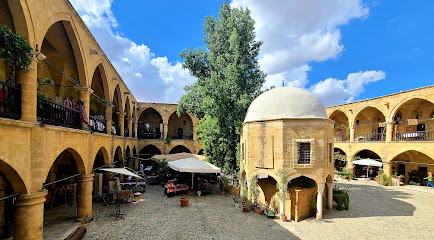
Crow's Arch
Explore Crow's Arch in Protaras: A breathtaking natural rock formation perfect for photography, relaxation, and coastal adventures along Cyprus's stunning shores.
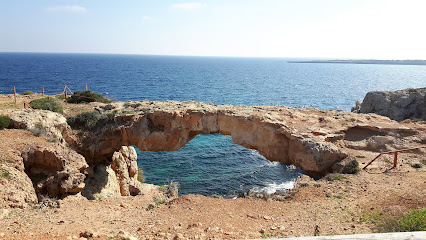
Selimiye Camii
Explore the historical Selimiye Camii, a remarkable blend of Gothic and Ottoman architecture in North Nicosia, Cyprus.
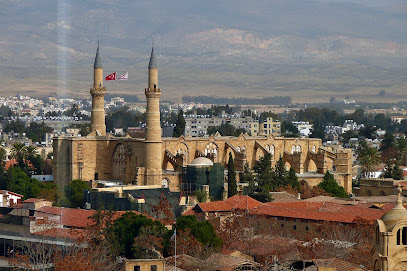
Kantara Castle
Discover the historical charm and breathtaking views at Kantara Castle, a must-visit destination in Cyprus.
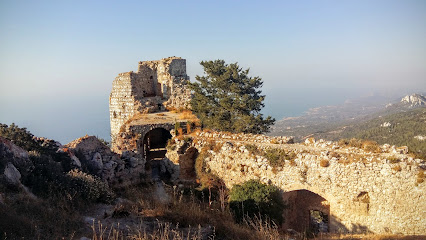
Niazi's Restaurant
Experience the essence of Mediterranean dining at Niazi's Restaurant in Girne, where delicious Turkish cuisine meets stunning sea views and warm hospitality.
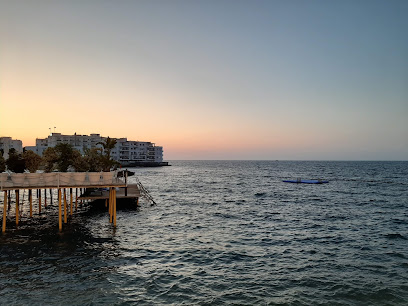
Kyrenia Gate
Explore Kyrenia Gate, a historical landmark in Nicosia that showcases the rich cultural heritage of Cyprus through its impressive architecture and vibrant surroundings.
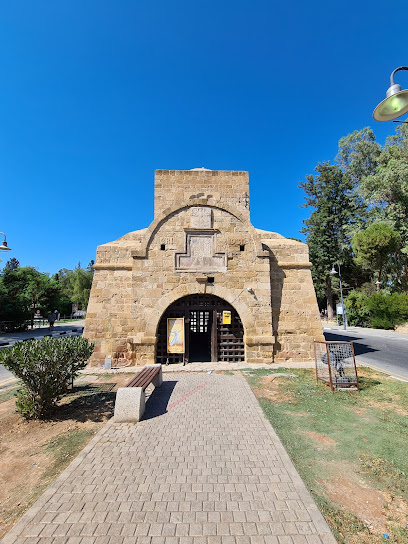
Peace and Freedom Museum
Explore Cyprus's complex history at the Peace and Freedom Museum in Kyrenia, a poignant tribute to the island's struggles and triumphs.
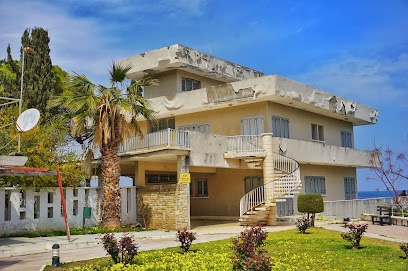
Karpaz Gate Marina
Experience luxury and serenity at Karpaz Gate Marina, a premier destination on the stunning Karpaz Peninsula in Northern Cyprus.
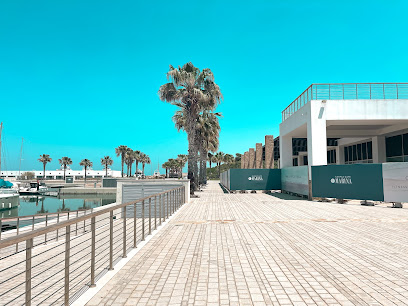
Korineum Golf & Beach Resort
Experience golfing excellence and Mediterranean charm at Korineum Golf & Beach Resort in Esentepe, North Cyprus. A luxury escape awaits!

Shacolas Tower Museum and Observatory
Experience the captivating history and breathtaking views of Nicosia at the Shacolas Tower Museum and Observatory, a must-visit destination in Cyprus.
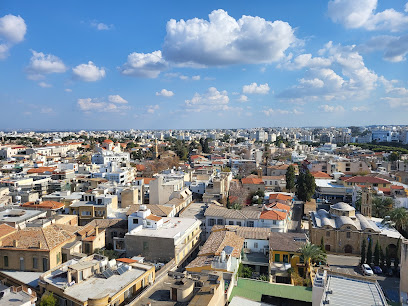
Unmissable attractions to see
Kyrenia Harbour
Explore the enchanting Kyrenia Harbour in Cyprus, where stunning views, rich history, and vibrant atmosphere create an unforgettable destination for travelers.
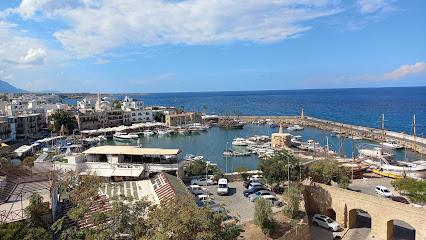
Bellapais Abbey
Discover the enchanting ruins of Bellapais Abbey in Northern Cyprus, a captivating blend of Gothic architecture, rich history, and breathtaking Mediterranean views near Kyrenia.
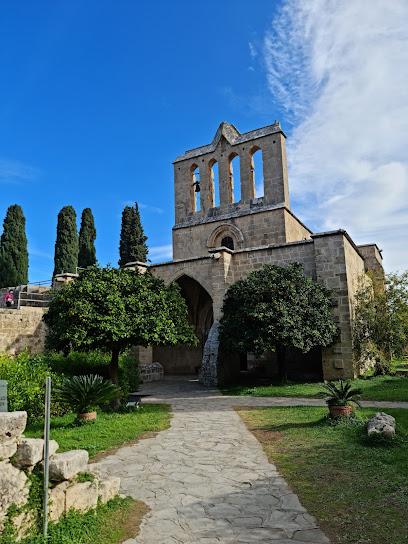
Girne (Kyrenia) Castle
Explore centuries of history within the imposing walls of Kyrenia Castle, a coastal fortress offering stunning views and a glimpse into Cyprus's rich past.
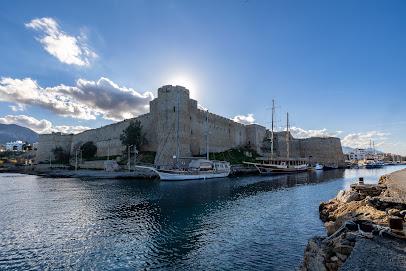
The Cyprus Museum
Explore Cyprus's captivating past at the Cyprus Museum in Nicosia, home to the island's most extensive collection of antiquities, showcasing a journey through Cypriot history from the Neolithic Age to the Byzantine era.
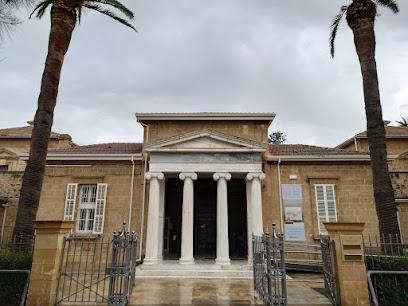
Lefkara
Discover Lefkara, Cyprus: A timeless village where exquisite lace and silver meet rich history and breathtaking scenery, offering an unforgettable cultural escape.
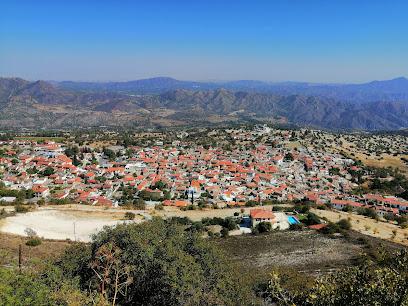
Selimiye Camii
Discover the architectural brilliance of Selimiye Camii in Edirne, a UNESCO World Heritage site showcasing Ottoman artistry and the genius of Mimar Sinan, a cultural and spiritual landmark.
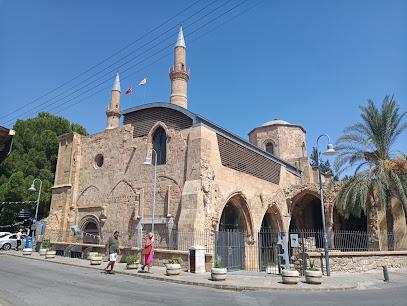
Kantara Castle
Discover Kantara Castle in Northern Cyprus: A historic fortress with breathtaking views, offering a unique blend of medieval history and natural beauty atop the Kyrenia mountain range.
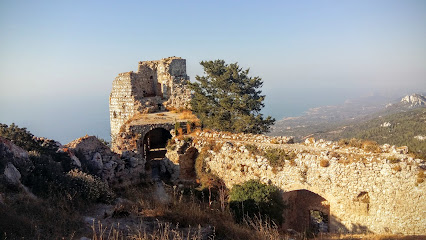
Peace and Freedom Museum
Explore Cyprus's quest for peace and independence at the Peace and Freedom Museum in Kyrenia, featuring poignant exhibits and historical artifacts from the events of 1974.
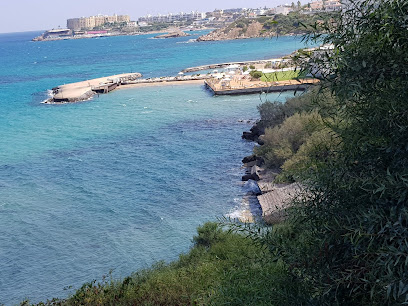
St. Hilarion Kalesi
Explore the fairytale fortress of St. Hilarion Castle in Kyrenia, Northern Cyprus, offering breathtaking views and a glimpse into the island's rich Byzantine and Lusignan history.
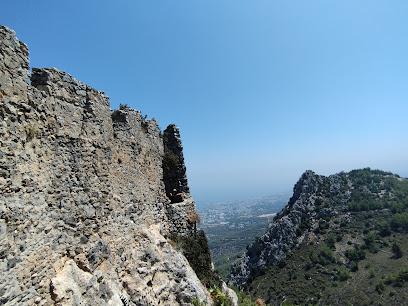
Peace Park
Discover a tranquil escape in Kyrenia's Peace Park: a green oasis with vibrant gardens, art installations, and family-friendly spaces for relaxation and recreation.
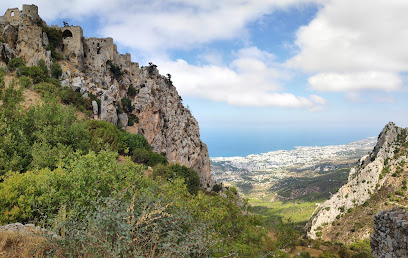
Cyprus Classic Motorcycle Museum
Discover a stunning collection of classic motorcycles from 1914-1983 at Nicosia's Cyprus Classic Motorcycle Museum, showcasing Cypriot history and the evolution of motorcycle design.
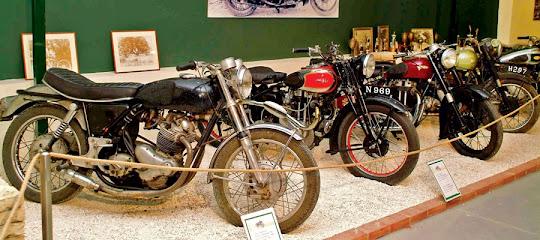
Shacolas Tower Museum and Observatory
Discover Nicosia from above at the Shacolas Tower Museum and Observatory, offering panoramic city views and a glimpse into Cyprus's rich history and cultural heritage.
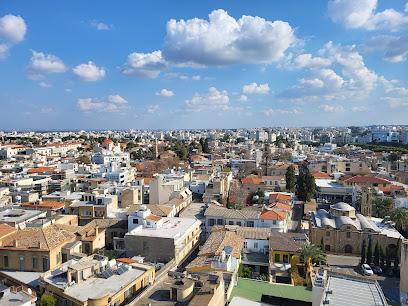
Hala Sultan Camii
Discover Hala Sultan Tekke, a serene Islamic shrine near Larnaca, Cyprus, steeped in history and revered for its tranquil beauty and spiritual significance by the Salt Lake.
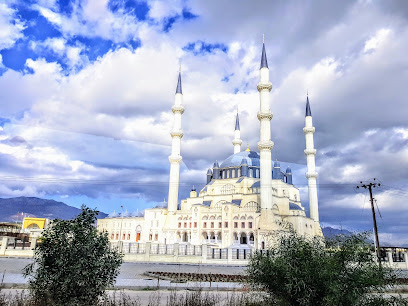
The Leventis Municipal Museum of Nicosia
Discover Nicosia's captivating history at the Leventis Municipal Museum, home to over 10,000 artifacts showcasing the city's evolution from ancient times to the present day, with free admission.
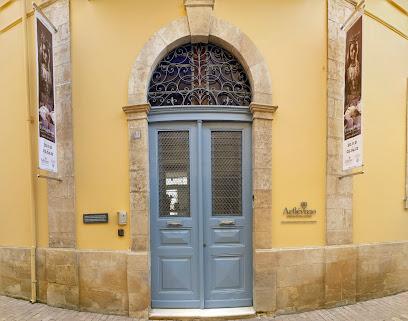
The Blue House
Discover the secrets of The Blue House in Çamlıbel, Northern Cyprus: a captivating museum blending history, mystery, and architectural intrigue for an unforgettable cultural experience.
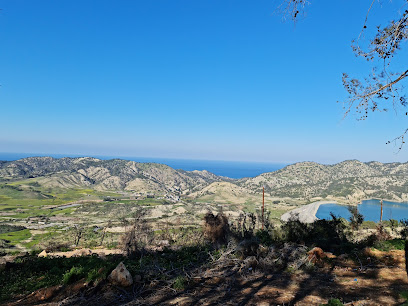
Essential places to dine
Eziç Peanuts
Discover authentic Turkish flavors at Eziç Peanuts in Kyrenia – where every dish is crafted with passion and tradition.
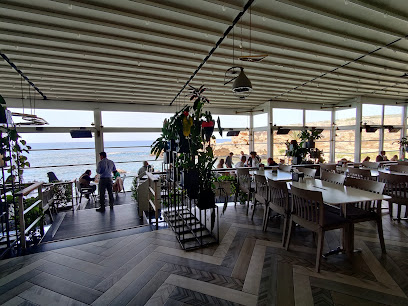
Nima Restaurant & Lounge Bar
Experience exquisite dining at Nima Restaurant & Lounge Bar in Kyrenia with stunning views and a menu that celebrates local flavors.
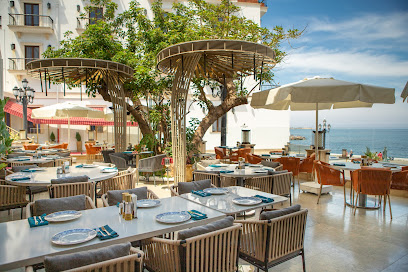
Ezic Restaurant
Experience authentic Turkish cuisine at Ezic Restaurant in Kyrenia – where every dish tells a story of flavor and tradition.
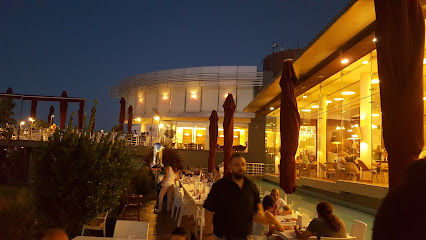
Niazi's Restaurant
Experience authentic Mediterranean cuisine at Niazi's Restaurant in Kyrenia, where traditional flavors meet stunning views.
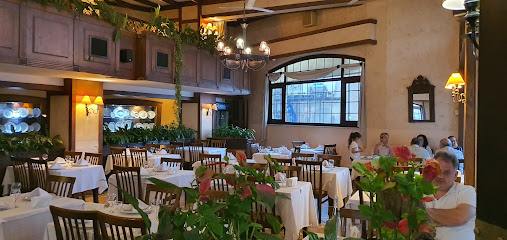
Uncle Sam's
Discover Uncle Sam's in Kyrenia – where local flavors meet warm hospitality for an unforgettable dining experience.
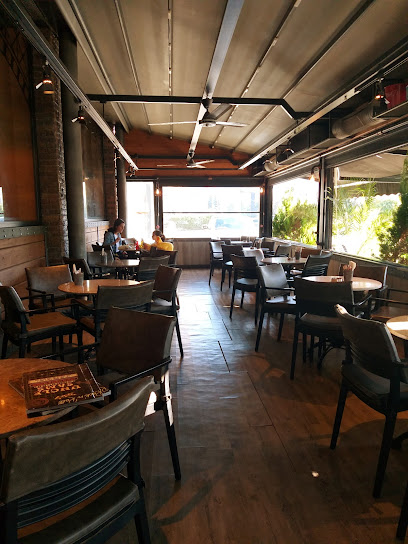
Hürdeniz Balık Restorant
Discover the best seafood dining experience at Hürdeniz Balık Restorant in Kyrenia, featuring fresh fish dishes and stunning Mediterranean views.
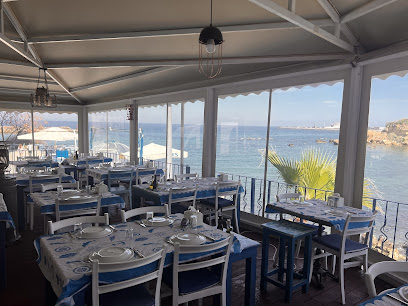
Kybele Restaurant Girne Kıbrıs
Discover Kybele Restaurant in Girne: where traditional Cypriot flavors meet modern culinary artistry in a breathtaking setting.
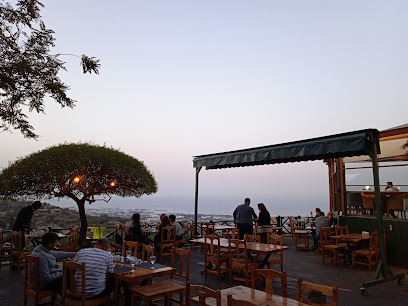
The George
Experience the authentic flavors of Cyprus at The George in Kyrenia - where local cuisine meets delightful ambiance.
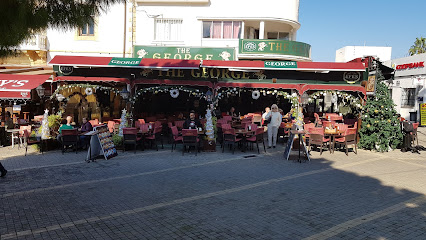
The House Lounge Bar & Restaurant
Discover the vibrant flavors of Mediterranean cuisine at The House Lounge Bar & Restaurant in Kyrenia – where culinary excellence meets breathtaking views.
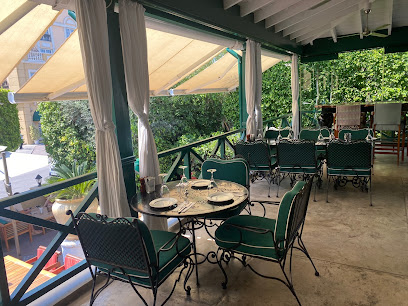
Mozzarella Pizza Cafe & Restaurant
Discover the taste of Italy and Cyprus at Mozzarella Pizza Cafe & Restaurant in Kyrenia - where every bite is a culinary delight.
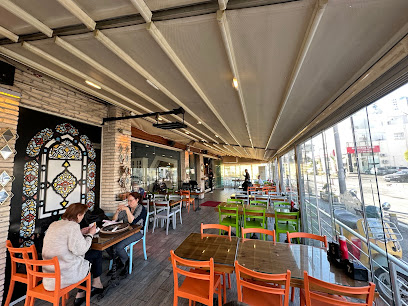
Kıbet Steak House
Experience the finest steaks in Kyrenia at Kıbet Steak House - where culinary excellence meets local charm.
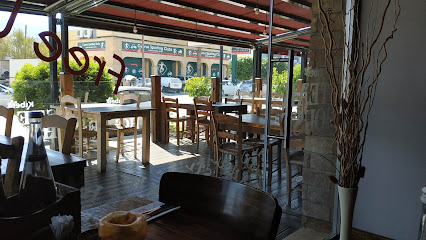
Kömür Steak & Ocakbaşı
Experience authentic Turkish cuisine at Kömür Steak & Ocakbaşı - where every bite tells a story.
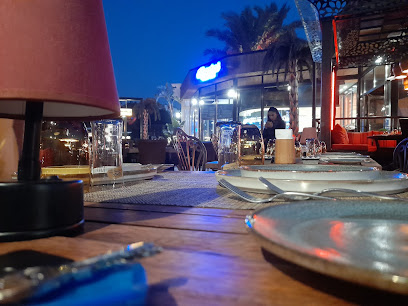
Archway Restaurant
Savor authentic Cypriot cuisine at Archway Restaurant in Zeytinlik, where fresh ingredients meet warm hospitality for an unforgettable dining experience.
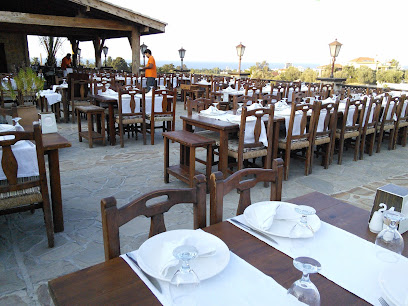
Anchor Cafe & Restaurant
Experience the vibrant flavors of Cyprus at Anchor Cafe & Restaurant, where fresh ingredients meet warm hospitality in a charming setting.
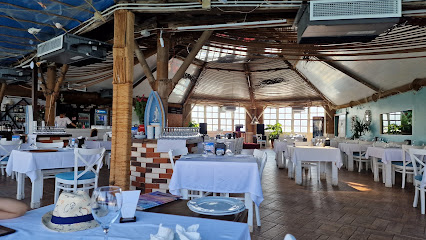
Beyti Restaurant
Experience authentic Turkish cuisine at Beyti Restaurant in Kyrenia - a must-visit for food lovers seeking traditional flavors.
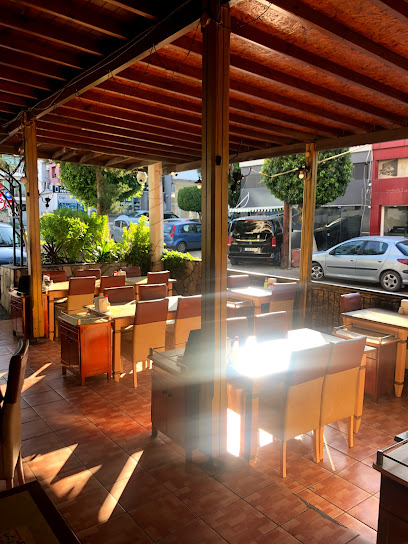
Markets, malls and hidden boutiques
Mr. Pound
Explore Mr. Pound, a treasure trove of unique gifts and souvenirs in Kyrenia, capturing the essence of Cyprus.
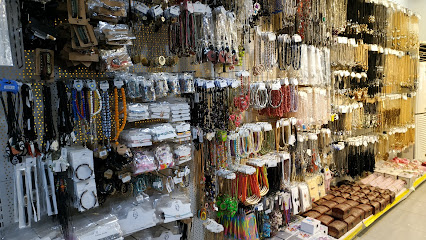
LC Waikiki and koton
Shop trendy fashion at LC Waikiki and Koton in Kyrenia, where style meets affordability for the ultimate shopping experience.
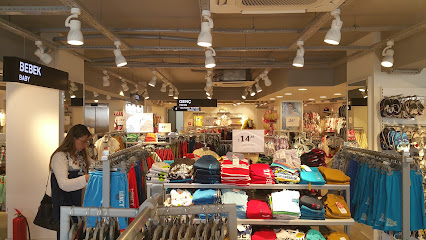
Kar Market
Discover the local flavors and vibrant atmosphere at Kar Market, Kyrenia's premier general store for authentic Cypriot goods.
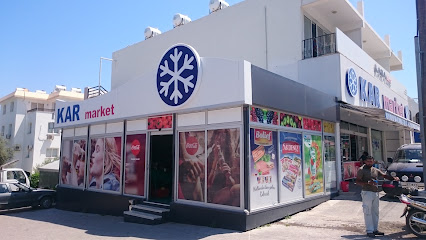
Girne Park AVM
Experience the best of shopping and dining at Girne Park AVM in the charming city of Kyrenia, Cyprus, where culture meets modern convenience.
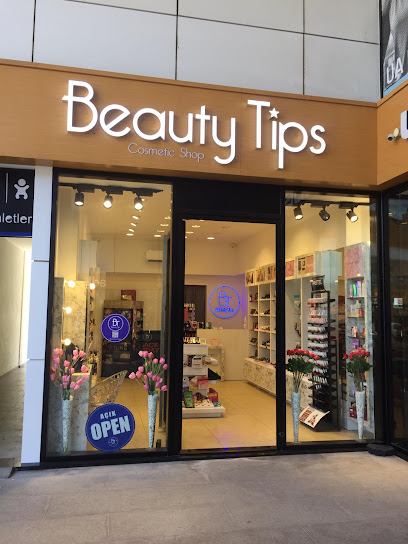
Yok Yoktur Market
Explore the vibrant Yok Yoktur Market in Kyrenia for a taste of local flavors, fresh produce, and authentic Cypriot culture.
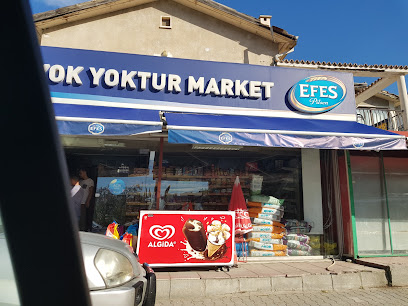
Shoptimum
Discover Shoptimum, Kyrenia's premier home goods store, offering unique decor and quality items for every taste and budget.
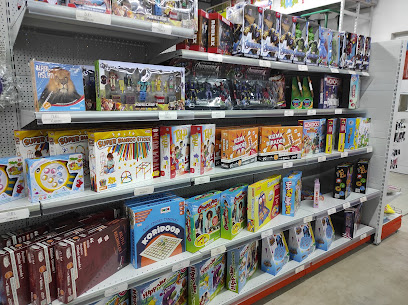
Aksoy Girne. A toy shop.
Discover a magical realm of toys at Aksoy Girne, a beloved toy shop in the heart of Kyrenia, perfect for families and collectors alike.
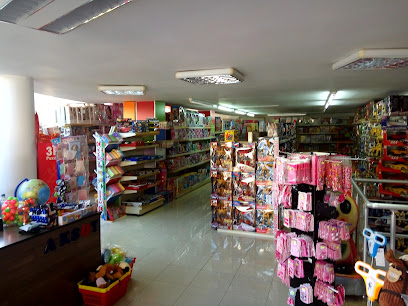
TUŞE BUTİK
Explore TUŞE BUTİK in Kyrenia for unique fashion and local crafts that reflect the beauty of Cyprus.
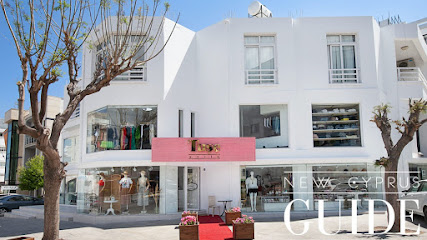
JUST P Collection
Explore the latest trends in footwear at JUST P Collection, Kyrenia's premier shoe store offering style and comfort for every occasion.
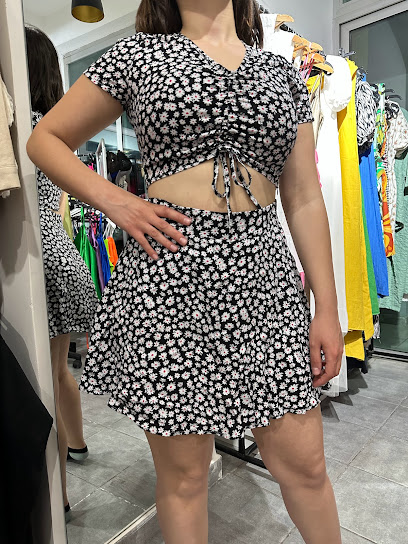
Gunna Cyprus Girne - Kuruyemiş, Kahve, Lokum, Şekerleme ve Kuru Meyve
Discover the rich flavors of Cyprus at Gunna Cyprus Girne, home to exquisite nuts, dried fruits, and traditional sweets in the heart of Kyrenia.
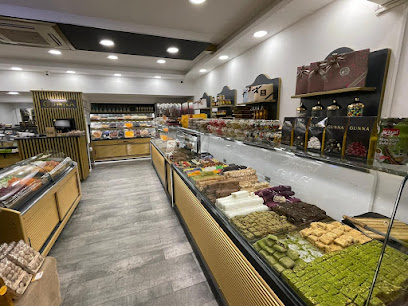
Kaner Brand House Kyrenia Store
Explore the charm of Kyrenia at Kaner Brand House, where local craftsmanship meets unique shopping experiences.
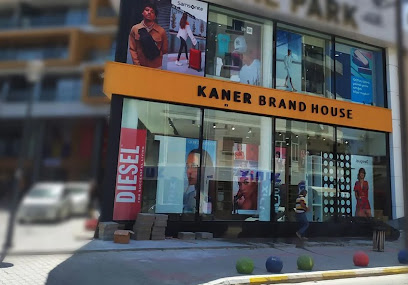
Enya Shop
Discover Enya Shop in Kyrenia for an exquisite selection of clothing that blends contemporary fashion with local Cypriot charm.
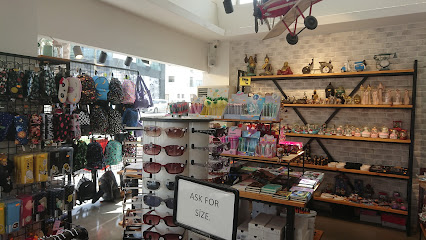
BARONES SILLAGE
Explore unique women's fashion at Barones Sillage in Kyrenia, where quality meets affordability in a charming shopping atmosphere.

Adamax (girne)
Discover unique fashion pieces at Adamax in Kyrenia, where style meets quality in a charming shopping experience.
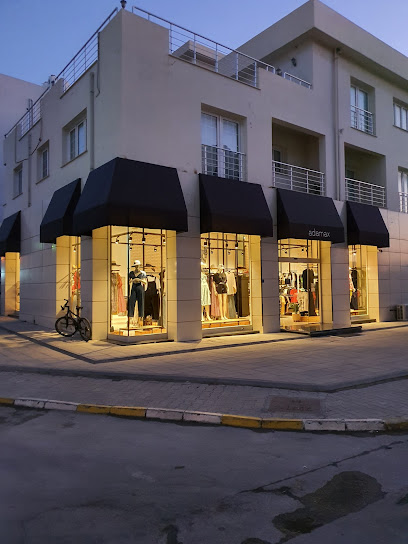
Boutique Cyprus Gifts
Explore Boutique Cyprus Gifts in Kyrenia for unique souvenirs that embody the spirit of Cyprus, from handcrafted items to local delicacies.
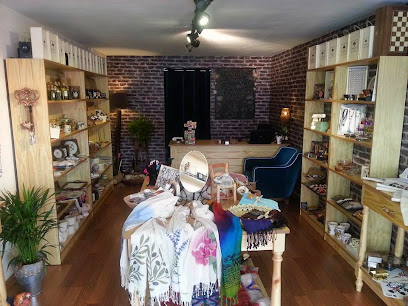
Essential bars & hidden hideouts
The House Lounge Bar & Restaurant
Experience the best of Mediterranean cuisine and vibrant nightlife at The House Lounge Bar & Restaurant in Kyrenia, Cyprus.
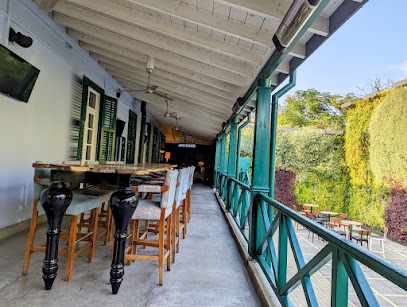
Sky Lounge & Bar
Sky Lounge & Bar in Kyrenia: Experience stunning views, delicious cocktails, and vibrant nightlife in the heart of Cyprus.
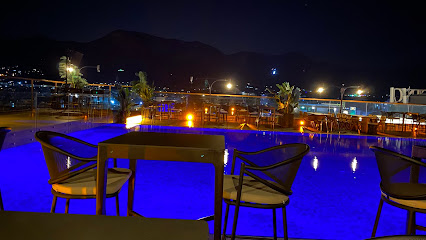
Groggy lounge
Experience the vibrant nightlife of Kyrenia at Groggy Lounge, a unique bar and club offering delicious food, drinks, and unforgettable entertainment.
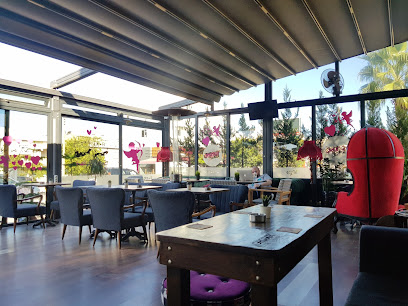
Ego Bar
Discover the vibrant atmosphere of Ego Bar in Kyrenia, where refreshing drinks and lively entertainment create an unforgettable nightlife experience.
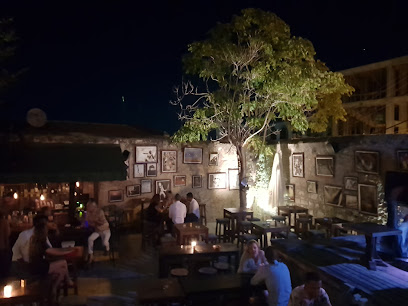
Tango to Buddha
Experience the perfect blend of relaxation and vibrant nightlife at Tango to Buddha, a must-visit bar in captivating Kyrenia, Cyprus.
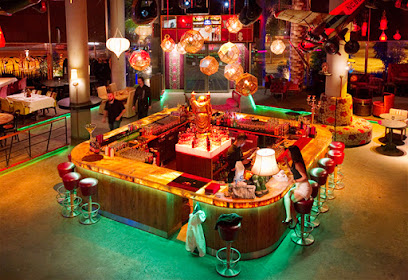
Rock Onyx Bar and Club
Experience the vibrant nightlife of Kyrenia at Rock Onyx Bar and Club, where cocktails, music, and stunning views come together for an unforgettable evening.
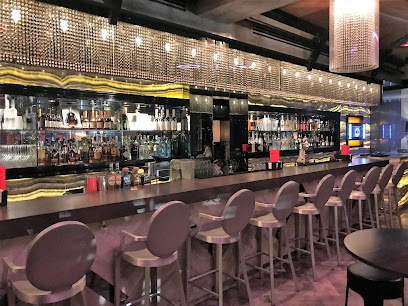
Montenegro ' C Sports PUB
Experience the ultimate sports and entertainment haven in Kyrenia at Montenegro 'C Sports PUB, where Mediterranean cuisine meets live music and fun!
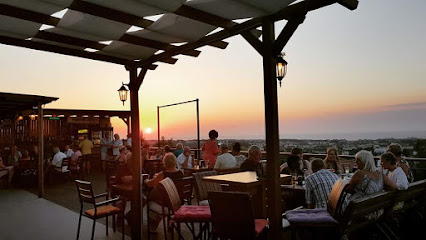
Karaf House
Discover the vibrant atmosphere of Karaf House, Kyrenia's premier wine bar and live music venue, perfect for unforgettable evenings.
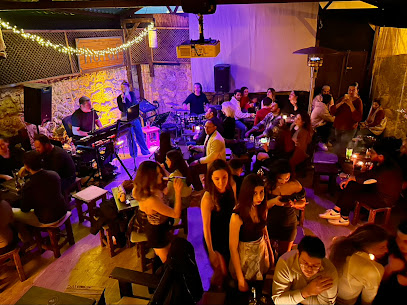
Avlu Bar
Discover the vibrant nightlife of Kyrenia at Avlu Bar, where great drinks and lively atmosphere await in every corner.
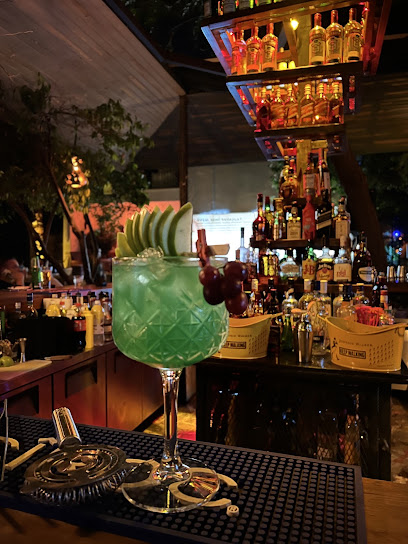
Losers Club Girne
Experience the vibrant nightlife at Losers Club Girne, a must-visit bar in the heart of Kyrenia, Cyprus, known for its lively atmosphere and great drinks.
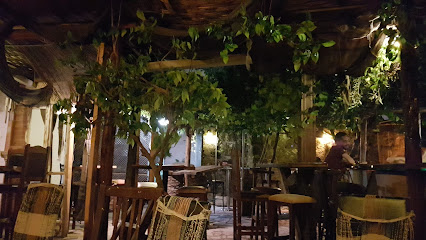
Baragadi Bar
Discover the perfect blend of grilled delicacies and stunning Mediterranean views at Baragadi Bar in Kyrenia.
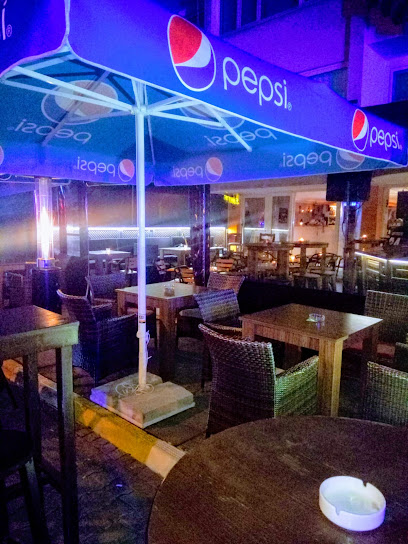
Queen Lounge
Experience the vibrant nightlife of Kyrenia at Queen Lounge, a unique bar and lounge with a cafe, hookah, and karaoke options to enchant every visitor.
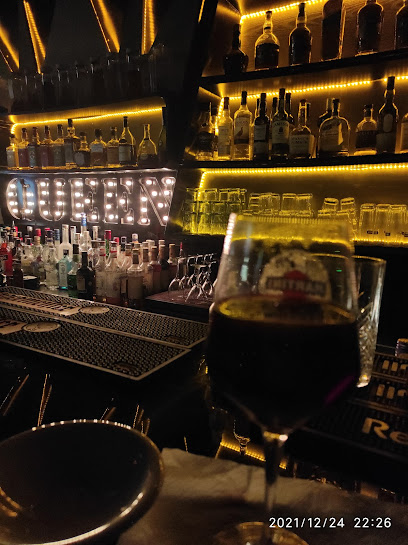
Sitare Bar
Experience the vibrant nightlife at Sitare Bar in Kyrenia, where great drinks and a lively atmosphere await every visitor.
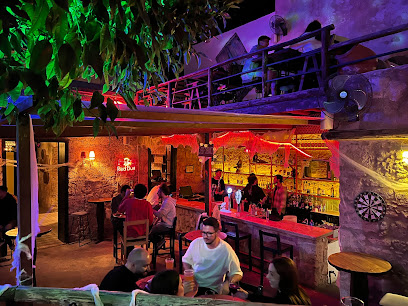
Bar33@theoldmill
Discover the vibrant nightlife of Kyrenia at Bar33@theoldmill, where great drinks and a lively atmosphere await.
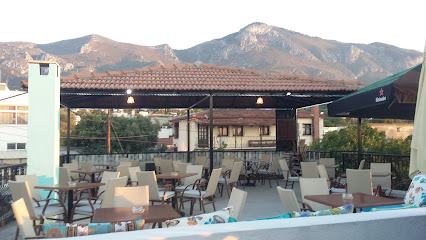
Local Phrases
-
- HelloΓεια σας
[Ya sas] - GoodbyeΑντίο
[Adio] - YesΝαι
[Ne] - NoΌχι
[Ochi] - Please/You're welcomeΠαρακαλώ
[Parakalo] - Thank youΕυχαριστώ
[Efharisto] - Excuse me/SorryΣυγγνώμη
[Signomi] - How are you?Πώς είσαι;
[Pos ise;] - Fine. And you?Καλά. Εσύ;
[Kala. Esi;] - Do you speak English?Μιλάτε αγγλικά;
[Milate anglika;] - I don't understandΔεν καταλαβαίνω
[Den katalaveno]
- HelloΓεια σας
-
- I'd like to see the menu, pleaseΘα ήθελα να δω το μενού, παρακαλώ
[Tha ithela na do to menu, parakalo] - I don't eat meatΔεν τρώω κρέας
[Den troo kreas] - Cheers!Υγεία!
[Ygeia!] - I would like to pay, pleaseΘα ήθελα να πληρώσω, παρακαλώ
[Tha ithela na plirosso, parakalo]
- I'd like to see the menu, pleaseΘα ήθελα να δω το μενού, παρακαλώ
-
- Help!Βοήθεια!
[Voithia!] - Go away!Φύγε!
[Fiye!] - Call the Police!Καλέστε την αστυνομία!
[Kaleste tin astinomia!] - Call a doctor!Καλέστε γιατρό!
[Kaleste giatro!] - I'm lostΈχω χαθεί
[Eho hatei] - I'm illΕίμαι άρρωστος
[Eimai arrostos]
- Help!Βοήθεια!
-
- I'd like to buy...Θα ήθελα να αγοράσω...
[Tha ithela na agoraso...] - I'm just lookingΑπλά κοιτάζω
[Apla kitazo] - How much is it?Πόσο κοστίζει;
[Poso kostizi;] - That's too expensiveΑυτό είναι πολύ ακριβό
[Afto ine poli akribo] - Can you lower the price?Μπορείτε να μειώσετε την τιμή;
[Boreite na meiosete tin timi;]
- I'd like to buy...Θα ήθελα να αγοράσω...
-
- What time is it?Τι ώρα είναι;
[Ti ora ine;] - It's one o'clockΕίναι μία ώρα
[Ine mia ora] - Half past (10)Μισή (10)
[Misi (10)] - MorningΠρωί
[Proi] - AfternoonΑπόγευμα
[Apoyema] - EveningΒράδυ
[Vradi] - YesterdayΧθες
[Hthes] - TodayΣήμερα
[Simera] - TomorrowΑύριο
[Avrio] - 1Ένα
[Ena] - 2Δύο
[Dio] - 3Τρία
[Tria] - 4Τέσσερα
[Tessera] - 5Πέντε
[Pente] - 6Έξι
[Exi] - 7Επτά
[Epta] - 8Οκτώ
[Okto] - 9Εννέα
[Ennea] - 10Δέκα
[Deka]
- What time is it?Τι ώρα είναι;
-
- Where's a/the...?Πού είναι ένας/η...
[Pu ine enas/i...] - What's the address?Ποια είναι η διεύθυνση;
[Pia ine i diefthinsi;] - Can you show me (on the map)?Μπορείτε να μου δείξετε (στο χάρτη);
[Boreite na mou dixete (sto charti);] - When's the next (bus)?Πότε είναι το επόμενο (λεωφορείο);
[Pote ine to epomeno (leoforeio);] - A ticket (to ....)Ένα εισιτήριο (για ....)
[Ena isitirio (ya ....)]
- Where's a/the...?Πού είναι ένας/η...
History of Kyrenia
-
Kyrenia, known as Girne in Turkish, is a city with a rich history dating back to antiquity. The area was first settled by the Mycenaeans around the 10th century BCE. Over the centuries, it developed into a prominent maritime hub due to its strategic location on the northern coast of Cyprus.
-
During the Byzantine period, Kyrenia served as a vital defensive outpost against Arab raids. The town's most iconic structure, Kyrenia Castle, was initially built by the Byzantines in the 7th century CE to protect the city and its harbor. This period saw the fortification of the city and the construction of significant religious buildings.
-
In the 12th century, Kyrenia came under the control of the Crusaders, specifically the Lusignan dynasty. The Lusignans expanded the Kyrenia Castle, reinforcing its walls and adding new towers. The castle became a crucial stronghold for the Crusaders in their efforts to maintain control over Cyprus.
-
In 1489, Cyprus became a part of the Republic of Venice. The Venetians further fortified Kyrenia Castle, turning it into one of the most formidable defensive structures on the island. They added thick walls and a moat, which are still visible today. The Venetian influence is also evident in the city's architecture and urban planning.
-
Kyrenia fell to the Ottoman Empire in 1571 following a protracted siege. The Ottomans maintained and utilized the existing fortifications, and the city experienced a period of relative peace and stability. The Ottoman era brought significant changes to the city's demographic and cultural landscape, introducing Turkish architectural styles and the construction of mosques.
-
In 1878, Cyprus was leased to the British Empire, and Kyrenia became an important administrative and commercial center. The British introduced modern infrastructure and contributed to the city's development. This period saw the construction of new roads, schools, and public buildings, some of which are still in use today.
-
Following Cyprus' independence in 1960, Kyrenia continued to grow and develop as a major tourist destination. However, the city was significantly impacted by the events of 1974, when Turkey invaded Cyprus in response to a Greek-led coup. Today, Kyrenia is part of the Turkish Republic of Northern Cyprus, recognized only by Turkey. The city remains a popular tourist destination, known for its historic harbor, ancient ruins, and vibrant cultural life.
Kyrenia Essentials
-
Kyrenia is located on the northern coast of Cyprus. The nearest international airport is Ercan International Airport (ECN), located approximately 40 kilometers from Kyrenia. Alternatively, you can fly into Larnaca International Airport (LCA) in the south and cross the border via one of the designated crossing points. From Ercan, you can take a taxi or rent a car to reach Kyrenia. From Larnaca, you can use a combination of taxi and bus services to cross the border and then travel to Kyrenia.
-
Kyrenia is relatively small and many attractions are within walking distance. Taxis are readily available and are a convenient way to get around, though it's advisable to agree on a fare before starting your journey. There is also a local bus service, which connects Kyrenia to nearby towns and villages. Renting a car is another popular option, especially if you plan to explore the wider region. Be aware that traffic drives on the left side of the road.
-
The official currency in Northern Cyprus is the Turkish Lira (TRY). Credit cards are widely accepted in hotels, restaurants, and larger shops, but it's a good idea to carry some cash for smaller establishments and markets. ATMs are plentiful in Kyrenia, and most accept international cards. Currency exchange services are also available in the town.
-
Kyrenia is generally a safe destination for tourists. However, like any travel destination, it is advisable to take standard precautions. Avoid walking alone at night in unfamiliar areas and keep an eye on your belongings in crowded places. Specific areas to be cautious about include the border crossing points and remote rural areas. Always stay vigilant and aware of your surroundings.
-
In case of emergency, dial 155 for police assistance, 112 for an ambulance, and 199 for the fire department. The local police station and medical facilities are available in Kyrenia. It is recommended to have travel insurance that covers medical emergencies. For minor health issues, there are pharmacies in the town where you can purchase over-the-counter medications.
-
Fashion: Do dress modestly, especially when visiting religious sites. Avoid wearing overly revealing clothing. Religion: Do respect local customs and traditions. Always cover your head and shoulders when entering mosques. Public Transport: Do be respectful and give up your seat to elderly passengers. Don't eat or drink on public transport. Greetings: Do greet people with a handshake. A friendly 'merhaba' (hello) is appreciated. Eating & Drinking: Do try local delicacies and accept food offerings graciously. Don't refuse hospitality, as it is considered impolite.
-
To experience Kyrenia like a local, visit the local markets where you can buy fresh produce and traditional Cypriot goods. Engage with locals, as they are often friendly and willing to share stories about the town's history and culture. Don't miss visiting the Kyrenia Harbour and Kyrenia Castle, which offer stunning views and a glimpse into the town's rich history. For a unique experience, take a boat trip along the coast, offering breathtaking views of the Mediterranean Sea.
Trending Landmark in Kyrenia
Nearby Cities to Kyrenia
-
Things To Do in Nicosia
-
Things To Do in Troodos
-
Things To Do in Larnaca
-
Things To Do in Famagusta
-
Things To Do in Limassol
-
Things To Do in Ayia Napa
-
Things To Do in Polis Chrysochous
-
Things To Do in Protaras
-
Things To Do in Pissouri
-
Things To Do in Paphos
-
Things To Do in Kato Paphos
-
Things To Do in Alanya
-
Things To Do in Batroun
-
Things To Do in Byblos
-
Things To Do in Beirut
















